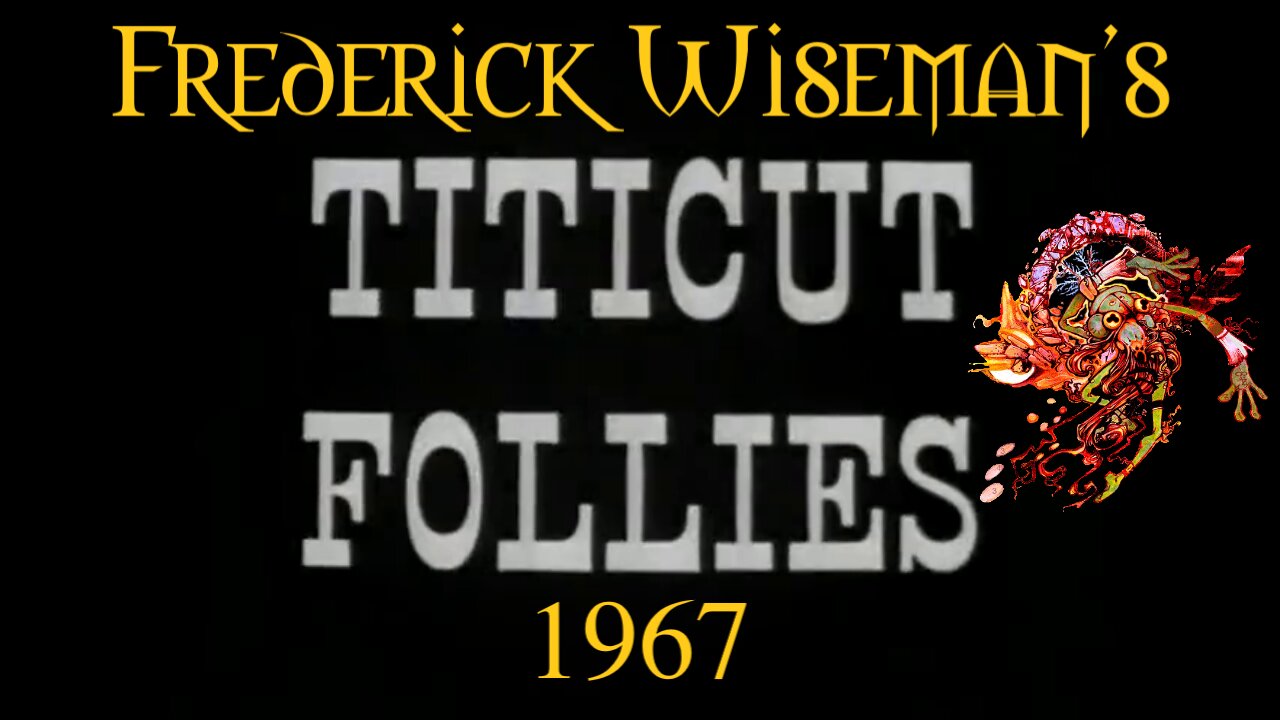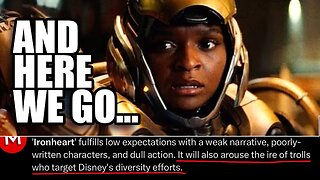Premium Only Content

Titicut Follies By Frederick Wiseman 1967
Titicut Follies By Frederick Wiseman 1967
0:00:01 V for Vendetta Scene
0:02:40 The Road to Shembala Three Dog Night
0:07:00 Titicut Follies by Frederick Wiseman 1967 (filmed 1966)
1:31:03 Franklyn's Tower The Grateful Dead
Filmmaker Frederick Wiseman exposes conditions at a Massachusetts hospital for the criminally insane.
VIEWER DISCRETION ADVISED: Adult situations & NSFW (insane situation)
Titicut Follies is a 1967 American direct cinema documentary film produced, written, and directed by Frederick Wiseman and filmed by John Marshall. It deals with the patient-inmates of Bridgewater State Hospital for the Criminally Insane, a Massachusetts Correctional Institution in Bridgewater, Massachusetts. The title is taken from that of a talent show put on by the hospital staff. Titicut is the Wampanoag name for the nearby Taunton River.
The film won accolades in Germany and Italy. Wiseman went on to produce a number of such films examining social institutions (e.g. hospitals, police, schools, etc.) in the United States.
In 2022, the film was selected for preservation in the United States National Film Registry by the Library of Congress as being "culturally, historically, or aesthetically significant".
Titicut Follies portrays the occupants of Bridgewater State Hospital, who are often kept in barren cells and infrequently bathed. It also depicts inmates/patients required to strip naked publicly, force feeding, and the indifference and bullying by many of the hospital’s staff.
Titicut Follies was the beginning of the documentary career of Frederick Wiseman, a Boston-born lawyer turned filmmaker. He had taken his law classes from Boston University to the institution for educational purposes and had "wanted to do a film there". He began calling the facility superintendent, seeking permission to film a year prior to production. Wiseman had previously produced The Cool World (1964), based on Warren Miller’s novel of the same name, an experience that informed his desire to direct.
Wiseman drafted a proposal that was verbally agreed to by the superintendent, which later came into question when the film began distribution. Following that agreement, filming began, with corrections staff following Wiseman at all times and determining on the spot whether the subjects filmed were mentally competent, adding further confusion to an already fraught process. While on location, Wiseman recorded the sound and directed the cameraman via microphone or by hand.
Just before the film was to be shown at the 1967 New York Film Festival, the Massachusetts government tried to procure an injunction banning its release, claiming that the film violated the patients' privacy and dignity. Despite Wiseman having received permission from all the people portrayed or that of the hospital superintendent (the inmates' legal guardian), Massachusetts claimed that this permission could not take the place of release forms from the inmates. Wiseman was also accused of breaching an "oral contract", giving the state government editorial control over the film. A New York state court allowed the screening, but in 1968, Massachusetts Superior Court judge Harry Kalus ordered the film to be recalled from distribution and all copies destroyed, once more citing the state's concerns about violations of the patients' privacy and dignity.
Wiseman appealed to the Massachusetts Supreme Judicial Court, which in 1969 allowed it to be shown only to doctors, lawyers, judges, health-care professionals, social workers, and students in these and related fields. Wiseman appealed to the United States Supreme Court, which refused to hear the case.
Wiseman believes that the government of Massachusetts (concerned that the film portrayed a state institution in a bad light) intervened to protect its reputation. The state intervened after a social worker in Minnesota wrote to Massachusetts governor John Volpe, expressing shock at a scene involving a naked man being taunted by a guard.
The dispute was the first known instance of a film being banned from general American distribution for reasons other than obscenity, immorality, or national security. It was also the first time that Massachusetts recognized a right to privacy at the state level. Wiseman has said, "The obvious point that I was making was that the restriction of the court was a greater infringement of civil liberties than the film was an infringement on the liberties of the inmates."
The film is now legally available through its distributor, Zipporah Films Inc., for purchase or rental on DVD and for educational and individual license. Zipporah released the DVD to the home market in December 2007.
In 2020, the film was shown on Turner Classic Movies.
In 2022, the film was selected for preservation in the United States National Film Registry by the Library of Congress as being "culturally, historically, or aesthetically significant".
-
 18:07
18:07
Psychological operations
1 day agoWelcome To My Nightmare Public Animal #9 Alma Mater Grande Finale Alice Cooper
13 -
 LIVE
LIVE
Major League Fishing
2 days agoLIVE! - Bass Pro Tour: Stage 6 - Day 1
366 watching -
 LIVE
LIVE
The Bubba Army
22 hours agoWander Franco found GUILTY! - Bubba the Love Sponge® Show | 6/27/25
2,488 watching -
 1:58:00
1:58:00
Nick Freitas
12 hours agoFeminism Is Killing Society
2.08K13 -
 22:17
22:17
Clownfish TV
21 hours agoThe Ironheart Narrative Begins...
3.56K5 -
 LIVE
LIVE
BEK TV
23 hours agoTrent Loos in the Morning 6/27/2025
161 watching -
 9:53
9:53
MattMorseTV
20 hours ago $19.38 earnedCNN just made a FATAL MISTAKE.
55.3K67 -
 25:23
25:23
Uncommon Sense In Current Times
16 hours ago $2.34 earnedInside Iran: Lana Silk on the Underground Church, the Islamic Regime & the Fight for Freedom
12.6K3 -
 12:59
12:59
Actual Justice Warrior
17 hours agoDemocrat Calls For Gangs To ATTACK ICE
6.85K19 -
 34:18
34:18
Athlete & Artist Show
4 days ago $1.57 earnedPanthers Win BACK 2 BACK, Bennett Wins Conn Smythe, Can Florida Keep The Rat Pack?
12K1